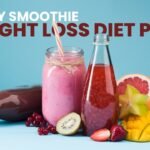Ricotta Cheese Nutrition: The TRUTH About This “Healthy” Chease!

We often think of it as the creamy, comforting heart of lasagna or the sweet filling of cannoli, but ricotta cheese is so much more than just a delicious ingredient. Diving deeper into ricotta cheese nutrition reveals a treasure trove of health benefits that might surprise you. This humble cheese, traditionally made from whey, offers a unique nutritional profile that supports everything from muscle building to bone health. So, let’s peel back the layers and explore the fascinating world of ricotta!
What Exactly IS Ricotta Cheese?
Before we delve into ricotta cheese nutrition, it’s helpful to understand what ricotta actually is. Unlike most cheeses that are made directly from milk, ricotta is traditionally made from the whey – the watery liquid left over after making other cheeses like mozzarella or provolone. This unique production process contributes to its characteristic light, fluffy texture and subtly sweet flavor.
However, these days, some manufacturers also produce ricotta directly from whole milk or a combination of whey and whole milk. This results in a richer, creamier product. Regardless of the method, the end result is a versatile cheese with a lower fat content compared to many of its cheesy counterparts, making it a smart choice for health-conscious eaters.
Unlocking the Secrets of Ricotta Cheese Nutrition: A Detailed Breakdown
Let’s get down to the specifics. What exactly does ricotta cheese nutrition offer in terms of vitamins, minerals, and macronutrients? Here’s a look at the nutritional profile of one-half cup (approximately 4 ounces or 124 grams) of whole milk ricotta cheese:
- Calories: Approximately 180
- Protein: Approximately 14 grams
- Fat: Approximately 10 grams (with varying amounts of saturated fat depending on the milk used)
- Carbohydrates: Approximately 8 grams
- Calcium: Approximately 20% of the Daily Value (DV)
- Phosphorus: Approximately 20% of the DV
- Selenium: Approximately 14% of the DV
- Vitamin A: Approximately 8% of the DV
- Riboflavin (Vitamin B2): Approximately 10% of the DV
- Vitamin B12: Approximately 12% of the DV
Beyond these key nutrients, ricotta also contains smaller amounts of other essential vitamins and minerals like zinc, iron, and potassium. The exact nutritional values can vary slightly depending on the brand and the type of milk used (whole milk, part-skim milk, or whey-based).
Protein Powerhouse: Fueling Your Body with Ricotta
One of the most notable aspects of ricotta cheese nutrition is its impressive protein content. Protein is essential for building and repairing tissues, supporting immune function, and promoting satiety. The protein in ricotta is considered a complete protein, meaning it contains all nine essential amino acids that our bodies cannot produce on their own. This is a key benefit of ricotta.
This makes ricotta an excellent choice for athletes, individuals looking to increase their protein intake, and anyone seeking a healthy and satisfying meal or snack. Compared to other cheeses like cheddar or brie, ricotta provides a significant amount of protein with fewer calories and less fat. Therefore, incorporating ricotta into your diet can be a smart way to support your overall health and fitness goals.
Calcium and Bone Health: Strengthening Your Foundation
Calcium is another vital nutrient abundant in ricotta cheese nutrition. It plays a crucial role in maintaining strong bones and teeth, supporting nerve function, and regulating muscle contractions. Adequate calcium intake is particularly important for children, adolescents, and older adults, as it helps build and maintain bone density throughout life. Ricotta contributes substantially to your daily calcium intake.
A single serving of ricotta can contribute a significant portion of your daily calcium needs. Combining ricotta with other calcium-rich foods like leafy greens or fortified cereals can help ensure you’re meeting your daily requirements and protecting your skeletal health.
The Fat Factor: Understanding the Different Types of Ricotta
While ricotta cheese nutrition includes a moderate amount of fat, it’s important to understand the different types of fat and their potential impact on health. Saturated fat, found in varying amounts depending on the type of ricotta, has been linked to increased cholesterol levels and a higher risk of heart disease. Choose part-skim ricotta to minimize saturated fat.
However, it’s crucial to consider the overall dietary context and individual factors when evaluating the impact of saturated fat. Part-skim ricotta options offer a lower fat content compared to whole milk versions, making them a suitable choice for those concerned about their saturated fat intake. Also, including healthy fats like olive oil and avocados in your diet can help balance the saturated fat from ricotta.
Lower Lactose Content: A Friendlier Option for the Lactose Intolerant?
Many people who are lactose intolerant find that they can tolerate ricotta cheese better than other dairy products. This is because the whey used to make ricotta often undergoes a process that reduces the lactose content. Furthermore, the culturing process in some ricotta varieties further breaks down lactose, making it more digestible. Ricotta is often a good option for those with lactose sensitivities.
However, lactose tolerance varies greatly from person to person. If you’re lactose intolerant, it’s always best to start with a small portion of ricotta and see how your body responds. Lactose-free ricotta options are also available for those who need to avoid lactose completely.
Ricotta vs. Cottage Cheese: A Nutritional Showdown
Ricotta and cottage cheese are often compared due to their similar appearance and texture. However, their nutritional profiles differ in some key aspects. Generally, ricotta tends to be slightly higher in fat and calories but also higher in protein compared to cottage cheese. Choose based on your individual nutritional needs.
Cottage cheese, on the other hand, is typically lower in fat and sodium. Ultimately, the best choice for you depends on your individual dietary needs and preferences. Both ricotta and cottage cheese offer valuable nutrients and can be part of a healthy diet.
Unleash Your Inner Chef: Creative Culinary Uses for Ricotta
Ricotta’s versatility makes it easy to incorporate into a wide range of dishes. From sweet to savory, breakfast to dessert, the possibilities are endless. Ricotta is an incredibly versatile ingredient.
- Breakfast: Add a dollop of ricotta to your oatmeal or yogurt for a protein boost. Spread it on toast with honey and berries for a delicious and nutritious breakfast.
- Lunch: Use ricotta as a filling for stuffed shells or ravioli. Add it to salads for a creamy texture and added protein.
- Dinner: Incorporate ricotta into lasagna, baked ziti, or other pasta dishes. Use it as a topping for pizza or flatbreads.
- Dessert: Blend ricotta with honey and lemon zest for a simple and elegant dessert. Use it as a filling for cannoli or other pastries.
Reddit users have great ideas when it comes to ricotta, one shared:
“I use ricotta as a healthy alternative to heavy cream in sauces for pasta, I often use it to make baked pasta”.
Addressing Common Concerns and Misconceptions About Ricotta
There are a few common misconceptions surrounding ricotta cheese nutrition. One is that it’s a high-fat, unhealthy food. While whole milk ricotta does contain fat, it’s important to remember that not all fats are created equal. The protein and calcium content of ricotta, combined with its lower lactose content, make it a worthwhile addition to a balanced diet. As an illustration, one serving of ricotta contains roughly 20% of the average person’s calcium intake, making it a good source of bone-strengthening calcium.
Another concern is the sodium content of some ricotta brands. Be sure to check the nutrition label and choose lower-sodium options whenever possible. Furthermore, it’s wise to moderate your intake of any single food, including ricotta, and focus on a diverse and balanced diet.
The Verdict: An Expert’s Take on Ricotta Cheese Nutrition
“Ricotta cheese is a surprisingly nutritious food that can be a great addition to a balanced diet,”
says registered dietitian Sarah Jones.
“Its high protein content makes it a satisfying option for weight management, and its calcium content is beneficial for bone health. Choose part-skim varieties to reduce saturated fat intake and enjoy ricotta in moderation as part of a varied and healthy eating plan.”
Final Thoughts: Embrace the Power of Ricotta Cheese
Ricotta cheese nutrition offers a compelling case for incorporating this versatile cheese into your diet. With its impressive protein content, abundance of calcium, and relatively low lactose content, ricotta provides a range of health benefits. From supporting muscle growth and bone health to providing a satisfying and delicious addition to your meals, ricotta is a nutritional powerhouse that deserves a place in your culinary repertoire. So next time you’re at the grocery store, don’t overlook the humble ricotta – it might just be the secret ingredient to a healthier and happier you. Ricotta is something to consider in your diet. Therefore, it is also important to explore all its variations and potential for a healthy lifestyle.








































































































































































































































































































































































































































































































